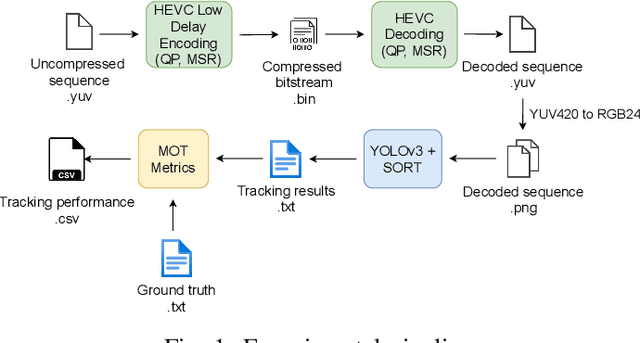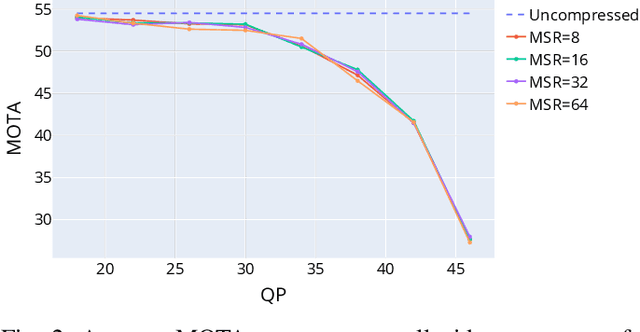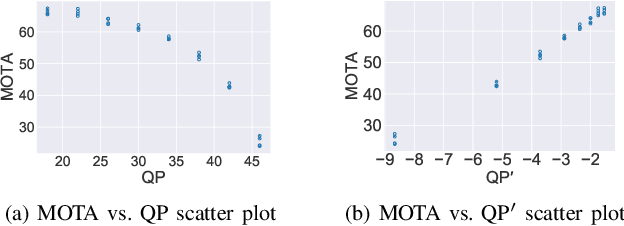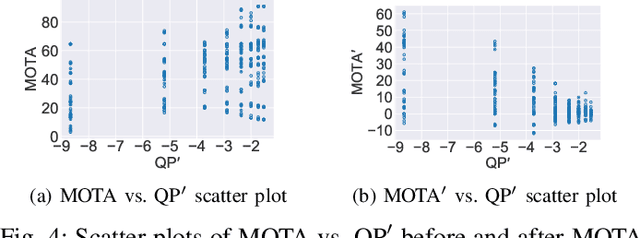Takehiro Tanaka
Does Video Compression Impact Tracking Accuracy?
Feb 02, 2022



Abstract:Everyone "knows" that compressing a video will degrade the accuracy of object tracking. Yet, a literature search on this topic reveals that there is very little documented evidence for this presumed fact. Part of the reason is that, until recently, there were no object tracking datasets for uncompressed video, which made studying the effects of compression on tracking accuracy difficult. In this paper, using a recently published dataset that contains tracking annotations for uncompressed videos, we examined the degradation of tracking accuracy due to video compression using rigorous statistical methods. Specifically, we examined the impact of quantization parameter (QP) and motion search range (MSR) on Multiple Object Tracking Accuracy (MOTA). The results show that QP impacts MOTA at the 95% confidence level, while there is insufficient evidence to claim that MSR impacts MOTA. Moreover, regression analysis allows us to derive a quantitative relationship between MOTA and QP for the specific tracker used in the experiments.
SFU-HW-Tracks-v1: Object Tracking Dataset on Raw Video Sequences
Dec 30, 2021



Abstract:We present a dataset that contains object annotations with unique object identities (IDs) for the High Efficiency Video Coding (HEVC) v1 Common Test Conditions (CTC) sequences. Ground-truth annotations for 13 sequences were prepared and released as the dataset called SFU-HW-Tracks-v1. For each video frame, ground truth annotations include object class ID, object ID, and bounding box location and its dimensions. The dataset can be used to evaluate object tracking performance on uncompressed video sequences and study the relationship between video compression and object tracking.
 Add to Chrome
Add to Chrome Add to Firefox
Add to Firefox Add to Edge
Add to Edge